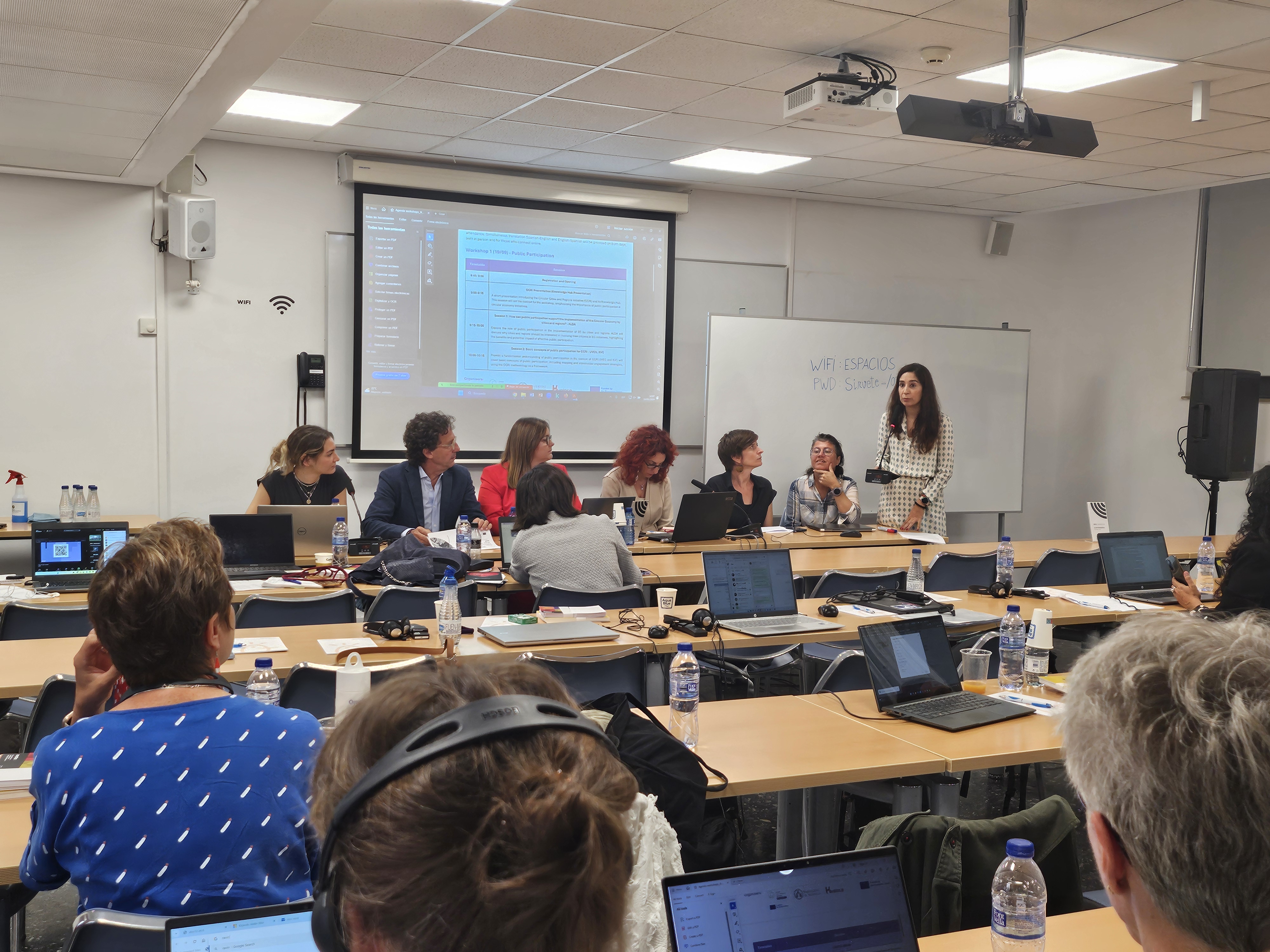These events aimed to enhance public engagement in circular economy efforts across Europe and to disseminate innovative circular business models in the agri-food sector, gathering local stakeholders, public authorities, and experts committed to advancing sustainable practices at the regional level. EURADA, as partners of the CCRI Knowledge Hub, participated actively in a session entitled “Good practices in implementing public participation in circular solutions at local and regional level” sharing insights from the FRONTSH1P project, in which EURADA is also involved.
The workshops were designed to build capacity among European cities and regions for implementing circular economy projects, emphasising the importance of public participation in these efforts. A key takeaway from the first workshop, centred on public engagement strategies, was the essential role of co-creation activities in empowering communities. Directly involving communities in the design and implementation of circular economy initiatives and sustainable practices fosters a deeper sense of commitment and ownership, which is key to ensuring the sustainability of these efforts over time.
In line with this idea, EURADA presented FRONTSH1P project, as an example of good practices in citizen engagement. The project, which employs a place-based approach, prioritises the involvement of the local community in the shift from a linear, coal-dependent economy to a circularbioeconomy. Through initiatives like a local currency system, a self-assessment tool for households, and a microgrant program, FRONTSH1P empowers residents to take active roles in the circular transition, being directly involved in the design and implementation of solutions, based on their own local needs.
Moreover, the discussions highlighted the need for tailored engagement strategies to reach diverse community groups, especially those who are often underrepresented in decision-making processes. The FRONTSH1P project demonstrated that using varied communication channels—such as social media campaigns targeting younger demographics, and local newspaper articles for older generations — can significantly enhance outreach. These strategies are crucial in overcoming barriers like distrust in government and ensuring that the benefits of circular economy transitions are equitably shared across the community. With this being only one of the many examples presented, the Valencia workshops reinforced the idea that effective public engagement is pivotal for the success of circular economy projects.
All in all, the workshops in Valencia marked an important step in the ongoing efforts of the CCRI Knowledge Hub to promote circular economy practices across Europe. By bringing together stakeholders and showcasing successful models, the event underscored the potential of public participation to drive systemic change. As cities and regions continue to navigate their transitions to circularity, the lessons learned from these workshops—particularly the emphasis on inclusivity, co-creation, and community-driven solutions—will be crucial in shaping future initiatives. EURADA remains committed to supporting these efforts through its work with the CCRI Knowledge Hub and other circular economy projects, fostering a more sustainable, circular future for all.
If you are interested in reading more about the workshops, you may consult this article.
If you would like to know more about the event or discuss the CCRI Knowledge Hub, feel free to contact cristina.sanzrutherford(at)eurada.org
